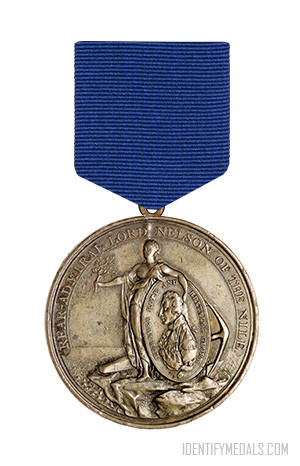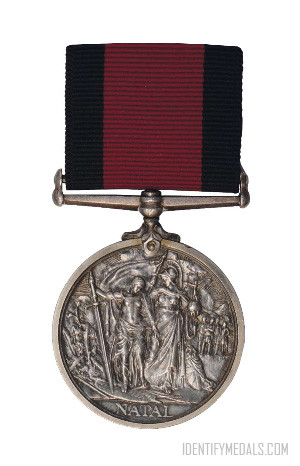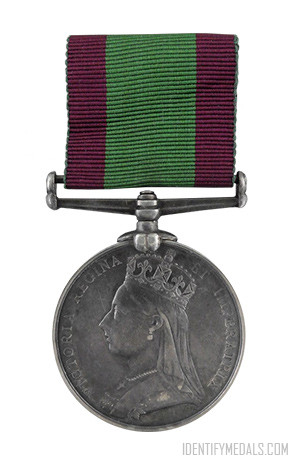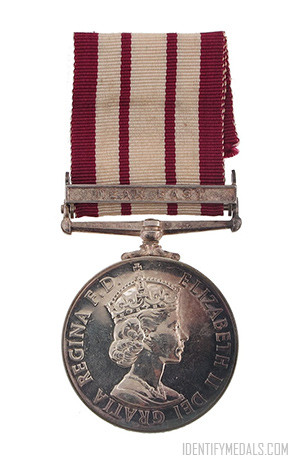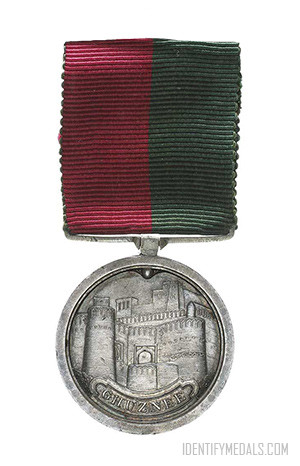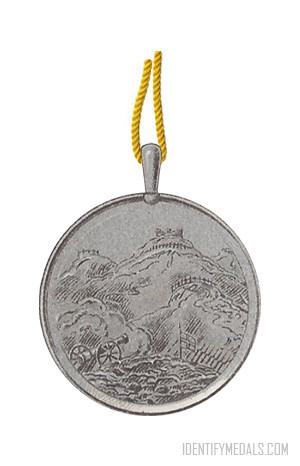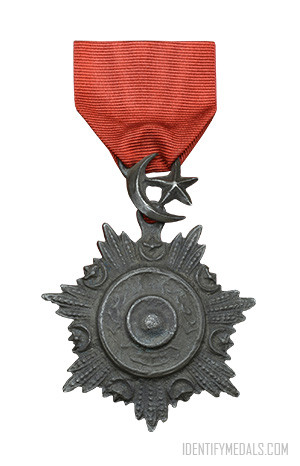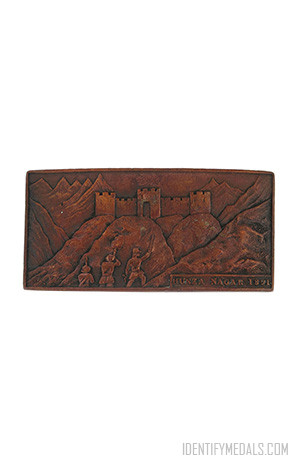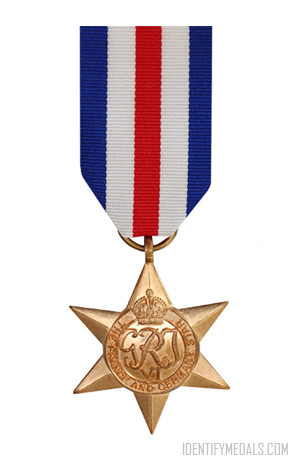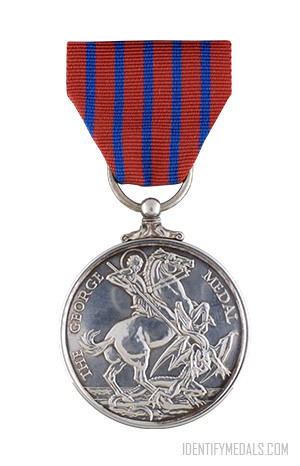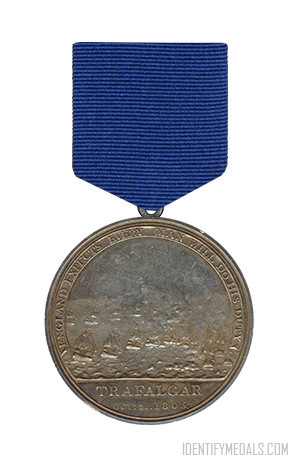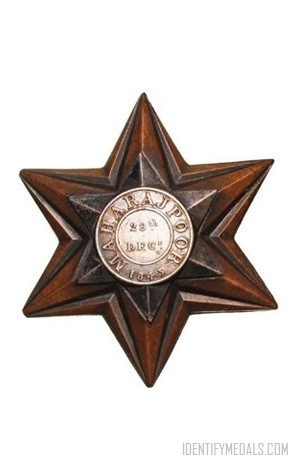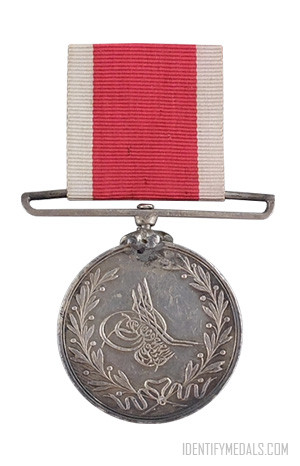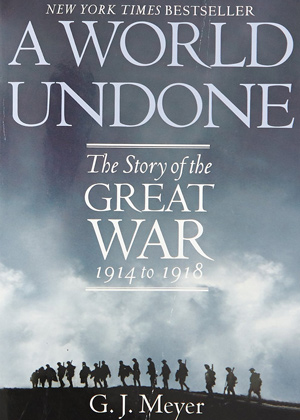- Time Period: Pre-WW1
- Year of Institution: 1798
- Country: Great Britain
The Davison’s Nile Medal was instituted in 1798 by Alexander Davison, who was appointed by Nelson for the captured ships after the battle of the Nile on 1 August 1798.
Davison had this medal struck and presented to all who took part in the action. It was awarded in gold to Nelson and his captains, in silver to Lieutenants and Warrant Officers, in gilt metal to Petty Officers, and in copper to seamen and marines.
Admiral Nelson’s medal was stolen in 1900 and it’s believed to have been melted down.
The Davison’s Nile Medal Design
The medal is struck in gold, silver, gilt-bronze or bronze and measures 47 mm wide.
The obverse shows, on a rock near the sea, Peace standing and holding in her right an olive branch. She supports with her left hand a medallion of Nelson, an anchor behind her. An inscription reads ‘REAR-ADMIRAL LORD NELSON OF THE NILE‘, ‘EUROPE’S HOPE AND BRITAIN’S GLORY‘, and below: ‘C.H.K‘. (C.H. Küchler).
The reverse bears a view of Aboukir Bay (the Aboukir promontory on the eastern rather than the western side of the bay), the English Fleet going into action and the French at anchor. A legend reads ‘ALMIGHTY GOD HAS BLESSED HIS MAJESTY’S ARMS‘. In the exergue is the inscription ‘VICTORY OF THE NILE AUGUST 1 1798‘, ‘M . B . SOHO‘ and ‘C . H . KUCHLER . FEC.’ The edge reads: ‘FROM ALEXR DAVISON, ESQR. ST. JAMES’ SQUARE A TRIBUTE OF REGARD.’
The award was given without a ribbon, but was used with an unofficial 32mm wide deep navy blue one and fitted with a ring.

